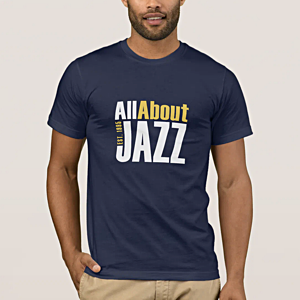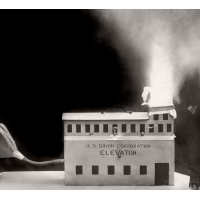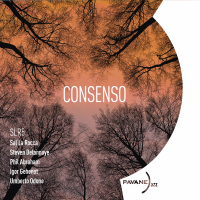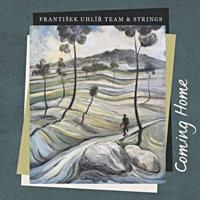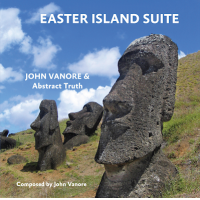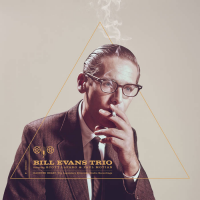Home » Jazz Articles » Extended Analysis » James Carter: James Carter Organ Trio: At The Crossroads
James Carter: James Carter Organ Trio: At The Crossroads
At the Crossroads
Emarcy Records
2011
Jazz has many faces. Some are searching and expansive, like those of alto saxophonists Ornette Coleman and John Coltrane, seeking the outer edges of the music. Some are reverent and deferential, like the Modern Jazz Quartet and trumpeter Wynton Marsalis, trying to lend respectability to the music borne in the whore houses of New Orleans' Storyville district. But like every family, there are the black sheep, the ones that want to stay out all night long, drinking and smoking pursuing all manner of pleasures of the flesh. That is what the soul jazz genre of the organ trio is. Conceived in an alley behind a delta juke joint on the Southern chitlin circuit, the jazz organ trio reminds jazz of its gravid, earthy origins, reminding alto saxophonist Charlie Parker and trumpeter Dizzy Gillespie know that Kansas City and New York City are not that far from Memphis, Tennessee, as the crow flies.
But organ jazz cleans up pretty well and, midnight Faustian bargains made on delta roads notwithstanding, saxophonist James Carter and his organ trio (augmented by horns on some tracks) evidence this on At The Crossroads, illustrating what happens when the blues put on a new suit and move uptown to the ritzy place where everyone drinks champagne rather than beer. But the blues can never shed, nor should want to, its humble beginnings, always acknowledging its origins in the rural cotton field, clapboard church and roadhouse. It is here that Carter takes advantage of the music, exploring all of its facets in his exceptional organ trio format. No stone is left unturned, no influence unaknowledged.
Taking nothing for granted, Carter opens with an modern up-tempo jump blues, trombonist Matthew Gee's "Oh Gee," complemented by Bruce Edwards on guitar. Carter's core trio, which has been in existence since 2005 and the release of Out of Nowhere (Halfnote Records), contains organist Gerard Gibbs and drummer Leonard King, Jr., who round out the performance. The opening piece is tightly displayed with effortless swing. Carter reveals amply that he is both a student and master of reeds, bar blowing and wailing in the same breath.
Carter is most potent as a blues player on those pieces that he doubles on tenor and baritone saxophones. "The Walking Blues" features vocalist Miche Braden and is a Louis Jordan-juke blues with a dense bottom and broad baritone solo-vamp that promotes Carter as a leading baritone player. Braden's scatting is bright and assertive over Gibbs' choppy organ. Braden returns on Maybelle Smith's "Ramblin Blues" (loosely based on Big Bill Broonzy's "Key to the Highway"), and Carter and guitarist Brandon Ross bring the blues way low-down. Trumpeter Kenyon Harold solos gutbucket, hitting every flatted fifth, followed by trombonist Vincent Chandler channelling Al Grey. Ronald Shannon Jackson's "Aged Pain" is all rhythm and blues made real with Edward's soulful guitar filigree. But it is Carter, singularly on baritone, who proves best since Gerry Mulligan that the big saxophone can serve as a dandy solo instrument. His solo is probing and inquisitive, well-balanced dramatically.
Carter pulls out the alto saxophone on a couple of selections. The Leonard King original "Lettuce Toss Yo Salad" is a contemporary chitlin circuit bar-walker. Carter's facility on the alto is equal to that on the other reeds: he is very much the full service reedist. Carter provides the same vibe on Jack McDuff's "Walkin' the Dog." Gibbs is churchy in his organ introduction, flavoring the cooker with gospel notes. The disc ends on two superb alto saxophone driven pieces: the traditional "Tis This Old Ship of Zion" and the progressive Julius Hemphill composition "The Hard Blues." On "Tis This Old Ship of Zion" Braden sings her best on the disc, the same way all involved play, all summoning the Holy Spirit. Gibbs is 100% beside the pulpit with Carter centrally positioned to show the gospel power in his playing. It is easy to forget that this is a jazz organ trio playing, amen.
Hemphill's "The Hard Blues" is the most provocative piece on the disc. A summation composition that weaves various blues styles together, Carter uses his performance as an integrating survey of the music in all of its hues. It is a filthy grinding groove laid down by Gibbs and King for Carter and Ross to probe and poke. And probe they do. Alternating through a bluesman John Lee Hooker dirge through an outer-space Coltrane romp, Carter and Ross spar and dance, summoning all of the spirits at bay. It is a Shakespearean ending to a hugely satisfying recording.
Tracks: Oh Gee; JC Off The Set; Aged Pain; The Walking Blues; My Whole Life Through; Walking The Dog; Lettuce Toss Yo Salad; Mysterio; Ramblin Blues; Come Sunday; Tis The Old Ship of Zion; The Hard Blues.
Personnel: James Carter: saxophones; Leonard King Jr.: drums, vocals (10); Gerard Gibbs: organ; Miche Braden: vocals (4, 11); Brandon Ross: guitar (4, 12); Bruce Edwards: guitar (1, 3, 6) Keyon Harrold: trumpet (4, 10); Vincent Chandler: trombone (4, 10); Eli Fountain: tambourines (10).
Personnel
James Carter
saxophoneAlbum information
Title: James Carter Organ Trio: At The Crossroads | Year Released: 2011 | Record Label: EmArcy
Tags
PREVIOUS / NEXT
Support All About Jazz
 All About Jazz has been a pillar of jazz since 1995, championing it as an art form and, more importantly, supporting the musicians who make it. Our enduring commitment has made "AAJ" one of the most culturally important websites of its kind, read by hundreds of thousands of fans, musicians and industry figures every month.
All About Jazz has been a pillar of jazz since 1995, championing it as an art form and, more importantly, supporting the musicians who make it. Our enduring commitment has made "AAJ" one of the most culturally important websites of its kind, read by hundreds of thousands of fans, musicians and industry figures every month.










